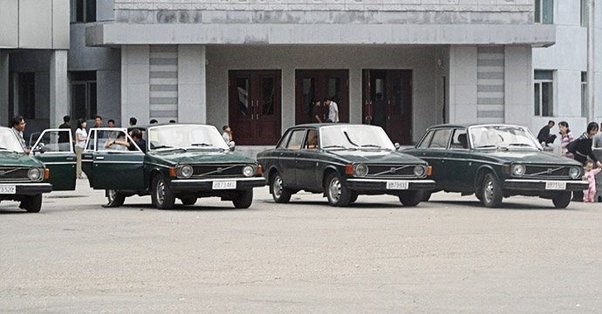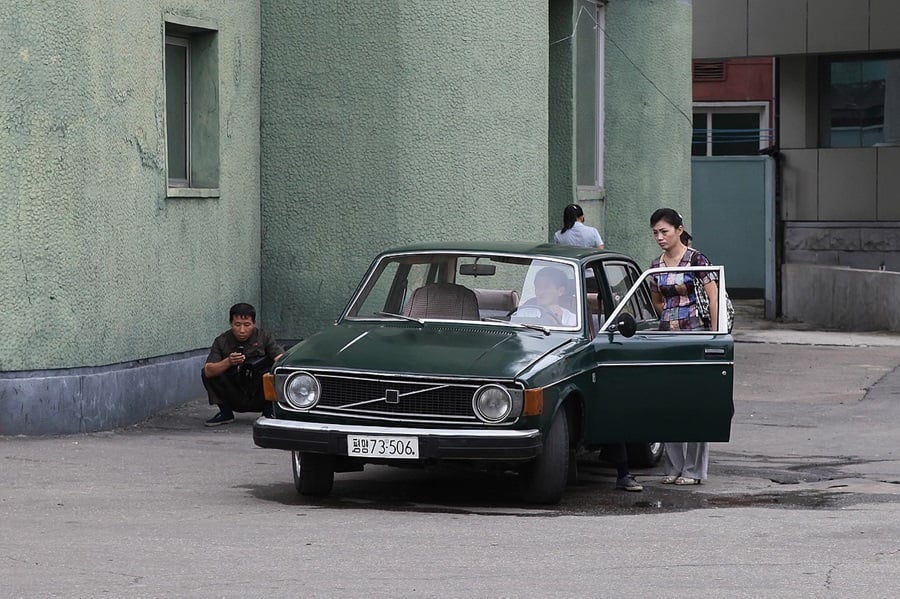In the annals of international diplomacy and trade, few stories are as bizarre and enduring as North Korea's "theft" of 1,000 Volvo cars from Sweden. This episode, which dates back to the 1970s, remains a striking example of the complexities and risks associated with international business dealings, especially with a country as unpredictable as North Korea.
In the early 1970s, Sweden sought to establish itself as a neutral mediator and trading partner with countries on both sides of the Cold War divide. As part of this effort, Sweden became one of the first Western countries to open diplomatic relations with North Korea. This diplomatic breakthrough was soon followed by a significant commercial agreement: North Korea agreed to purchase 1,000 Volvo 144 sedans, along with various other industrial goods, including mining equipment and paper pulp, totaling about 600 million SEK (roughly equivalent to 200 million USD today).

The Volvos were delivered to North Korea in 1974. These robust, reliable cars, renowned for their durability, were well-suited to the rugged terrain and limited infrastructure of North Korea. They were intended for use by government officials and in various public services. However, the anticipated payments from North Korea never materialized. Despite numerous reminders and diplomatic efforts, the North Korean government failed to honor its debt. The reasons behind this default are manifold, including North Korea's dire economic straits, its isolationist policies, and perhaps a strategic calculation that Sweden, a neutral country with limited means of enforcement, would be unable to effectively pursue the debt.
For decades, Sweden has been sending regular reminders to North Korea regarding the unpaid debt, which has now ballooned due to accumulated interest. As of the latest estimates, the total amount owed exceeds 2.8 billion SEK. Despite these efforts, North Korea has remained unresponsive. This debt has become somewhat of a running joke in Sweden, symbolizing the futility of dealing with an opaque and recalcitrant regime. It also serves as a cautionary tale about the risks of international trade with unstable and unpredictable partners.

Interestingly, some of these Volvos are still reportedly in use in North Korea, a testament to the cars' durability and the country's resourcefulness in maintaining them over the years. They can occasionally be seen in photographs and videos from Pyongyang, often used by government officials. The Volvo affair has had a lasting impact on Swedish-North Korean relations. While Sweden continues to maintain an embassy in Pyongyang and serves as a protecting power for several Western nations, the economic relationship has never fully recovered. The incident underscores the broader challenges of engaging with North Korea, a country known for its secretive and often antagonistic behavior on the international stage. North Korea's "theft" of 1,000 Volvos from Sweden remains a unique and intriguing episode in the history of international trade. It highlights the risks involved in dealing with regimes that operate outside the norms of international business and diplomacy. Decades later, the unpaid bill still serves as a reminder of the complexities and unpredictability of engaging with North Korea.
If you are interested in exploring advertising with us, I encourage you to get in touch. Please feel free to contact me directly, and I will be more than happy to provide you with further information, answer any questions you may have, and guide you through the process.
Nick Aylieff | Classic Motors For Sale |














































































